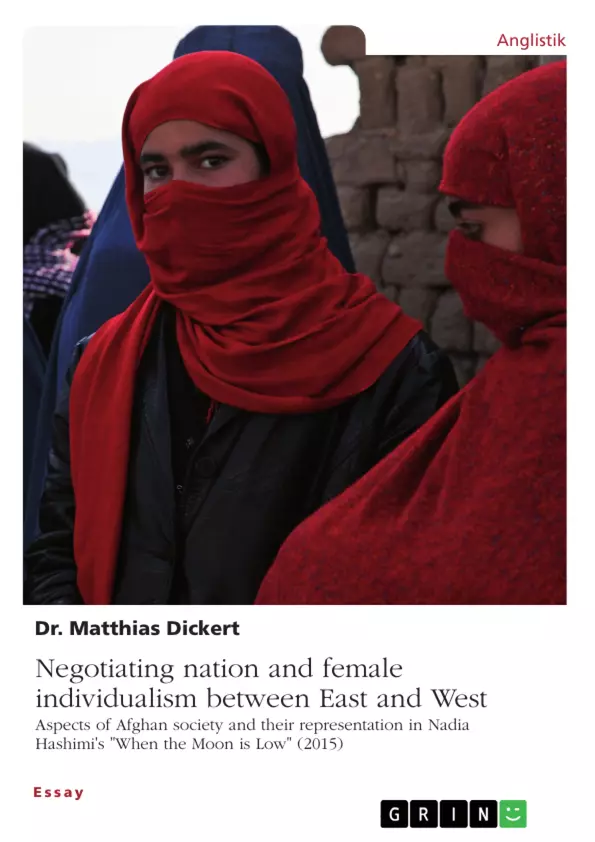The manifold reflections of loss of home or migration are complex in the displacement histories and narratives because they contain difficult, untraceable journeys and experiences of immigrants and refugees involved. At present, this also concerns the largest religious community linked to massive migration movements worldwide – the Muslims. All Muslim immigrants coming to Europe, Canada or the United States carry their national, cultural, religious and above all their personal past which taken together create an ideal basis for narrating their stories.
Things are worse in their own way when people at present are trying to flee from Afghanistan since the Taliban came back to power in 2021. Most Afghan people trying to escape from their mothercountry carry classical colonial or postcolonial topics such as matters of loss, expulsion, displacement, border crossing, exile, diaspora and home. These are – as in the case with female characters – often linked to intolerance, gender injustice or the inferior role of women in the Muslim world, which at present can be seen in Iran as well.
Nadia Hashemi’s novel “When the Moon is Low” (2015) is set against this background and offers an impressive story of an Afghan family's escape from the Taliban governed Afghanistan through the eyes of the main character Fereiba Waziri. Fereiba is a bold Afghani woman who decides to leave her homecountry after her husband's assassination by Talibani radicals. Crossing transational boundaries, the novel is a description of the plight of contemporary migrants who are set between the crisis of displacement and emplacement, all told from a female perspective.
Inhaltsverzeichnis (Table of Contents)
- Abstract
- Introduction
- Chapter 1: Negotiating Nation and Female Individualism in Nadia Hashimi's When the Moon is Low
- Chapter 2: Fereiba Waziri's Journey: From Kabul to Canada
- Chapter 3: Gender Roles and the Politics of Displacement
- Chapter 4: The Impact of Religious Fundamentalism on Afghan Society
- Chapter 5: The Crisis of Displacement and Emplacement
- Conclusion
Zielsetzung und Themenschwerpunkte (Objectives and Key Themes)
This essay examines the intersection of nationhood and female individualism within the context of Afghan society as portrayed in Nadia Hashimi's novel, *When the Moon is Low*. The essay analyzes how the protagonist, Fereiba Waziri, navigates the complexities of displacement and cultural identity while escaping the Taliban regime in Afghanistan. The key themes explored include:- The impact of religious fundamentalism on Afghan society and its implications for women
- The complexities of displacement and migration, particularly for Afghan refugees
- The negotiation of national and cultural identities in a transnational context
- The role of women in Islam and the challenges they face in patriarchal societies
- The representation of Afghan society and its socio-political dynamics in contemporary literature
Zusammenfassung der Kapitel (Chapter Summaries)
- Chapter 1: This chapter introduces the novel *When the Moon is Low* and its central theme: negotiating nationhood and female individualism. It explores the historical and political context of Afghanistan, particularly the rise of the Taliban and its impact on Afghan society, including the role of women.
- Chapter 2: This chapter delves into the journey of the protagonist, Fereiba Waziri, as she escapes from Afghanistan and navigates the complexities of displacement and cultural identity. It examines her experiences as a refugee in Canada and the challenges she faces in adapting to a new life.
- Chapter 3: This chapter focuses on the portrayal of gender roles and the politics of displacement in the novel. It explores the challenges women face in Afghan society and how these challenges are exacerbated by the impact of the Taliban regime. It also considers the influence of patriarchal structures on women's lives and their experiences of migration.
- Chapter 4: This chapter examines the impact of religious fundamentalism on Afghan society. It analyzes how religious ideology shapes societal norms and practices, particularly in relation to the role of women. It also explores the challenges of navigating religious beliefs and cultural traditions in a transnational context.
- Chapter 5: This chapter delves into the concept of displacement and emplacement as experienced by Fereiba Waziri. It examines the psychological and emotional impact of leaving one's homeland and navigating the complexities of adapting to a new environment. It also considers the challenges of maintaining cultural identity while embracing new experiences and opportunities.
Schlüsselwörter (Keywords)
The central themes and key concepts explored in this essay revolve around the socio-political dynamics of Afghan society, the role of women in Islam, and the impact of displacement and migration on identity formation. The essay examines these issues through the lens of Nadia Hashimi's novel *When the Moon is Low*, focusing on the experiences of the protagonist, Fereiba Waziri. Key keywords include: religious fundamentalism, Afghan society, the role of women in Islam, gender issues, border crossing, transnational migration, refugee crisis, displacement, emplacement.- Quote paper
- Dr. Matthias Dickert (Author), 2023, Negotiating nation and female individualism between East and West. Aspects of Afghan society and their representation in Nadia Hashimi's "When the Moon is Low" (2015), Munich, GRIN Verlag, https://www.grin.com/document/1319564



